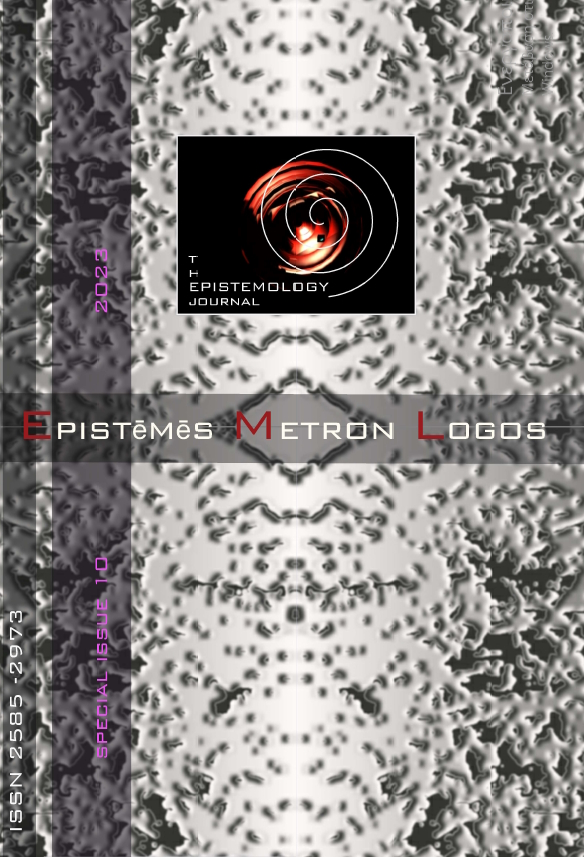Epistemology, ethics, aesthetics / fine arts, ontology/ Mathematics / Philosophy of mathematics / Epistemological models of various sciences / Critical review of History of Science / Book- and Dissertation- reviews
Announcements
CFP Special Issue Philosophy of Education and Theatre Pedagogy
2023-07-17
Call for Papers for Special Issue about Philosophy of Education and Theatre Pedagogy (issue 10 2023).
Lead Guest Editor
Ilias Maroudas, PhD in Theatre Pedagogy
CALL FOR PAPERS special issue (Ancient Greece & Speech)
2022-01-17
TOWARDS THE SOUND(S) OF SPEECH IN ANCIENT GREECE: METHODS, DATA & APPROACHES
Deadline: 31/5/2022The forthcoming special issue of Epistēmēs Metron Logos will be dedicated to the study of the sounds of language in ancient Greece (ca. 1200 B.C. ‒ ca. A.D. 500), in all its aspects: pronunciation and enunciation, phonetics and phonology, prosody and duration, pitch and accents, musical aspects, intonation, orality and the representation of sounds in script. Emphasis will be given to questions of methodology and epistemology, such as research tools, theories, and experimental techniques for the reconstruction and analysis of Greek pronunciation in antiquity; the history of scholarship on the sound of Greek; different tendencies and schools of research and their approaches; and the practical use of methods and theories to elucidate particular questions posed by empirical data, or to fill the gaps left by the lack of materials. Papers which combine theoretical background with the examination of case studies will be most welcome. (...)
NEW deadline for special issue! 31-3-2021
2021-01-10
1821-2021
The new method of Byzantine Music years after Two Centuries:
Underlying Problems & Emerging Solutions.
NEW Deadline due to COVID-19: 31/3/2021
Call for Papers, issue 6, July 2021
2020-11-17
Deadline: 15/5/2021Please send papers to Dr. Konstantinos Papageorgiou[email protected]OR via online submission systemCurrent Issue
No. 10 (2023): Special Issue 10

Published: 2024-12-23
special issue
Philosophy of education & Theatre pedagogy.
Lead Guest Editor: Ilias Maroudas, PhD in Theatre Pedagogy
Publishing partner
The folk song "The bridge of Arta". Bridging modern Greek literature and drama in an educational context
Simos Papadopoulos, Lina Basoukou
Exploring the myth of “Orpheus and Eurydice” in the classroom with the use of Inquiry Drama Method
Simos Papadopoulos, Alexia Papakosta


